Summer High School Opportunities
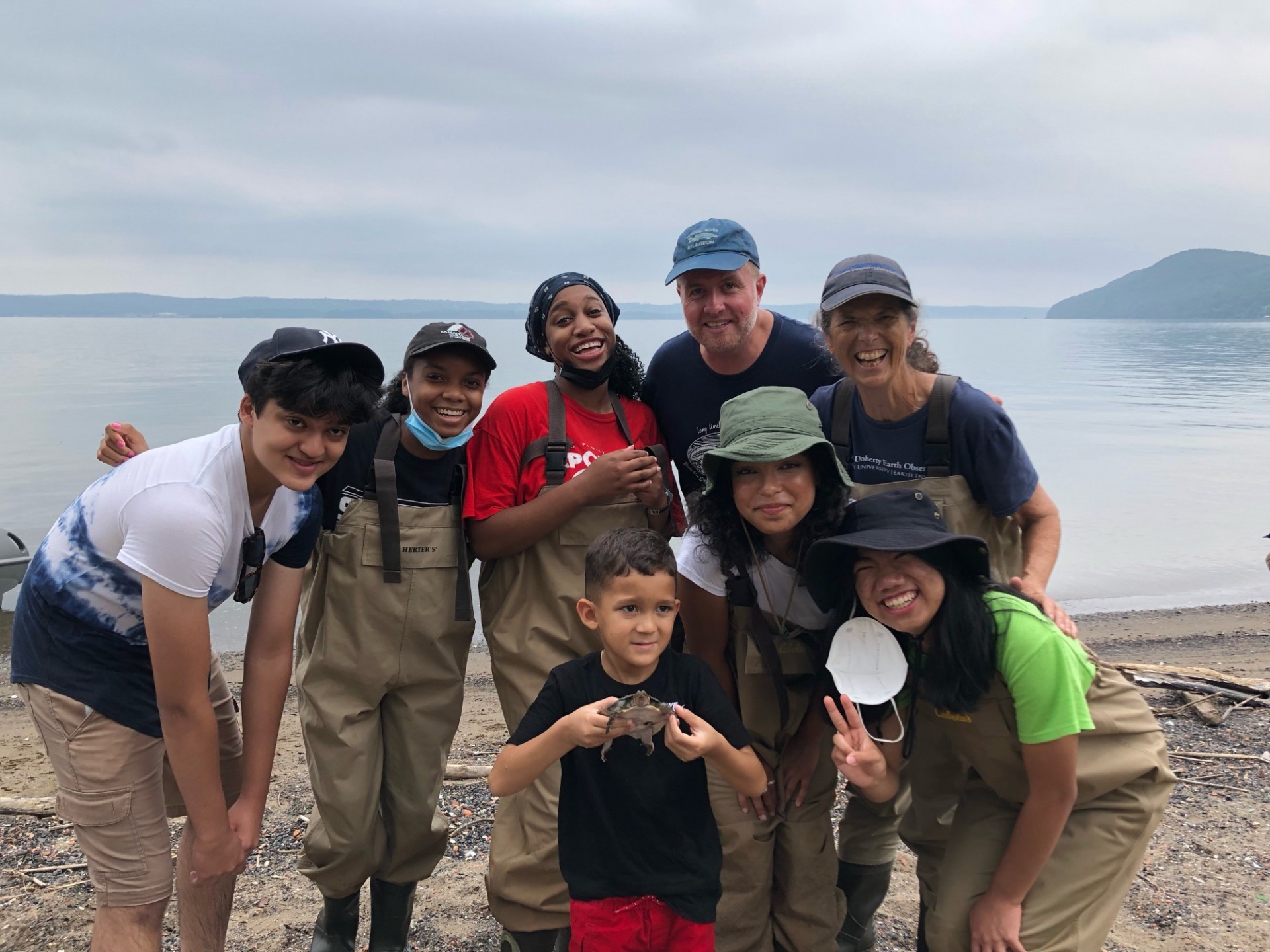
Next Generation of Hudson River Educators is a six-week summer program specifically designed to more effectively connect historically underrepresented high school students and under-resourced communities to the Hudson River.
Our high school students first take a deep dive into the Hudson River to develop a better understanding of the historic-to-present human connection to the estuary; the dynamism of its biology, physics, chemistry, geology, and topography; and the challenges the Hudson faces along with potential community solutions.
Image Carousel with 11 slides
A carousel is a rotating set of images. Use the previous and next buttons to change the displayed slide
-
Slide 1: “When I spoke to the kids I was surprised how knowledgeable they were and how outspoken and confident they were even if they did not know the right answer, which I found so admirable.” —Maria Chrispin, 2022, P-Tech HS
-
Slide 2: “With the help of the program it made me realize how underrated this river is and how misunderstood it is it’s like people haven’t sat down and actually enjoyed the little thing like the view and even the birds and bugs I learned that the Hudson was full of life having things such as crabs, and many types of fish and that it wasn’t dirty it was just all the sediments that rises up to the surface due to turbidity. I met wonderful and talented people who were just as excited as I was to learn about this river and this created a whole new core memory for me.” —Daira Cardenas, 2022, Spring Valley HS
-
Slide 3: “Growing up in the East Ramapo district, I know that our community is starting to take responsibility and educate people on the importance of nature. The MLK center for the kids is a great example of that.” And my time at this program really put that into perspective for me.” —Kerry Arroyo, 2022, Spring Valley HS
-
Slide 4: “We all had different angles at approaching the same things, and we all bounced ideas off of each other in such memorable ways. A strong memory for me was seamlessly working together with Janice on water chemistry, and we were multitasking and zipping through so many procedures all at once.” —Isabel Gallegos, 2022, Nanuet HS
-
Slide 5: “I really enjoy what we do as next generation Hudson River educators, making sure that the people we talk to think positively about the Hudson and try to make the river even better than it already is.” —Joseph Griffith, 2022, Bergen Catholic HS
-
Slide 6: The Hudson has also taught me how to appreciate my local environment. I never thought much about the unique beauty of Rockland, but learning how much aquatic life the Hudson supports in the span of Rockland alone still astounds me. The Hudson has taught me to appreciate Rockland and all of the natural beauty that is hidden underneath the surface of the water.” —Janice Yohannan, 2021-2022, Nyack HS
-
Slide 7: “Letting our family and friends know how simple it is to connect to the Hudson, whether it is by visiting Piermont Pier and Memorial Park in Nyack or participating in Science Saturday, will help them create strong and powerful connections with the Hudson.” —Nikita Chavan, 2022, Nanuet HS
-
Slide 8: “As educators our role is to correct misinformation concerning the river and to guide students to finding the true information. Without educators to stop the spread of harmful misinformation it can grow and stop many people from valuing the beautiful river so close to them.” —Austen Frappier, 2022, Nyack HS
-
Slide 9: “When we, as educators, steer more towards BIPOC, LGBTQ+, disabled, etc. peoples, we open a door of opportunities for underrepresented groups. Knowing that I was making a difference for younger girls and boys of color was really heartwarming and it motivated me throughout my educating experience.” —Madison Mila, 2022, Nyack HS
-
Slide 10: “The Haverstraw community is rooted in connection and building each other up. From restaurants like Los Amigos working to feed everyone in the town, Vilma’s Bakery helping you celebrate a special day, and the Haverstraw Youth Center dedicating their time to expose kids to nature — Haverstraw is all about supporting each other.” —Kaitlyn Canivel, 2021-2022, Albertus Magnus HS
-
Slide 11: “The Hudson isn't dirty, it's brownish color resembles the nutrient-rich estuary and turbidness. Society has made its brown color a barrier to its cleanliness when in reality the things accountable for its color make it beautiful. I was sixteen years old when I learned the Hudson wasn't dirty and that it prospered with diverse marine life.” —Evelyn Calle, 2022, Nanuet HS
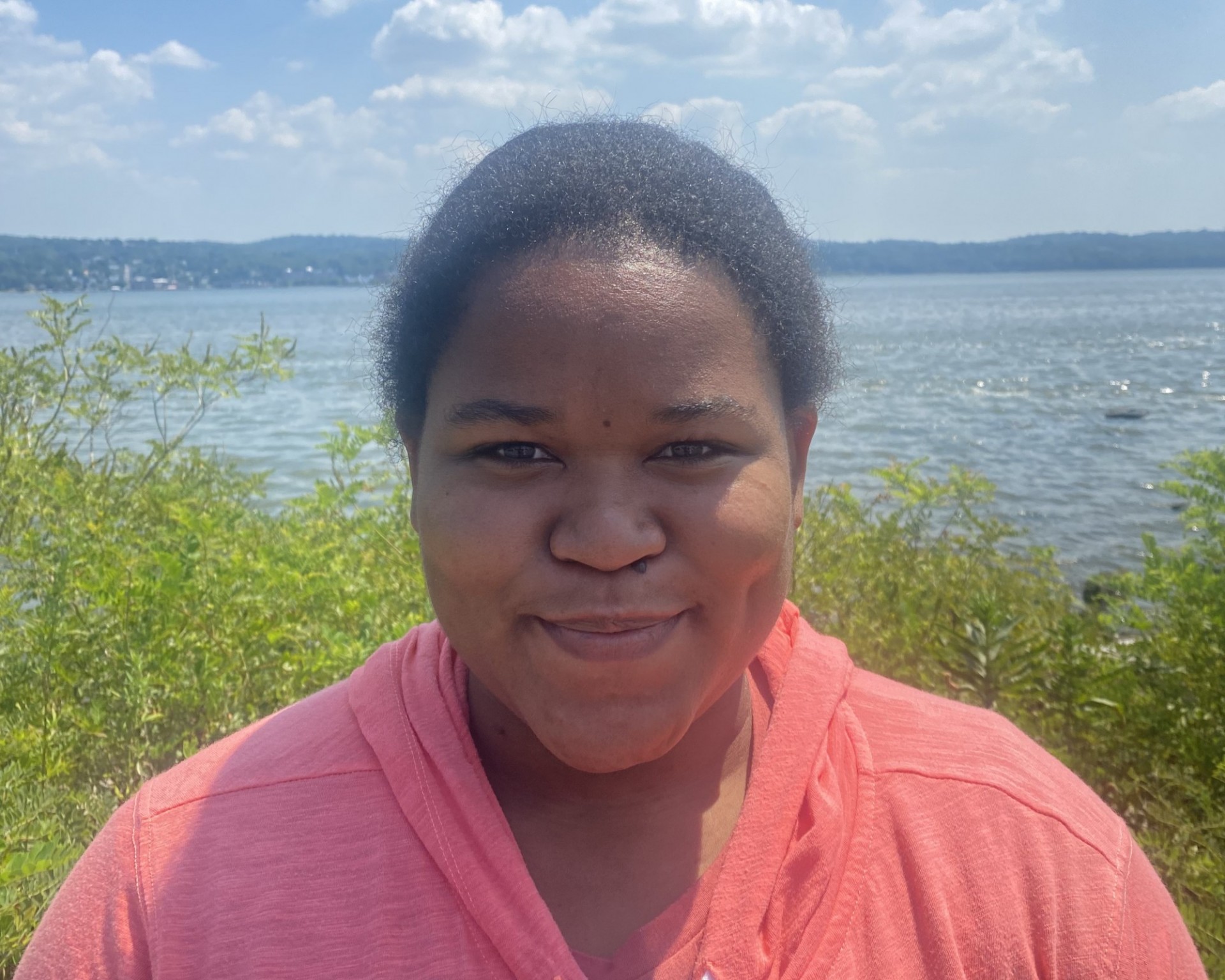
“When I spoke to the kids I was surprised how knowledgeable they were and how outspoken and confident they were even if they did not know the right answer, which I found so admirable.” —Maria Chrispin, 2022, P-Tech HS
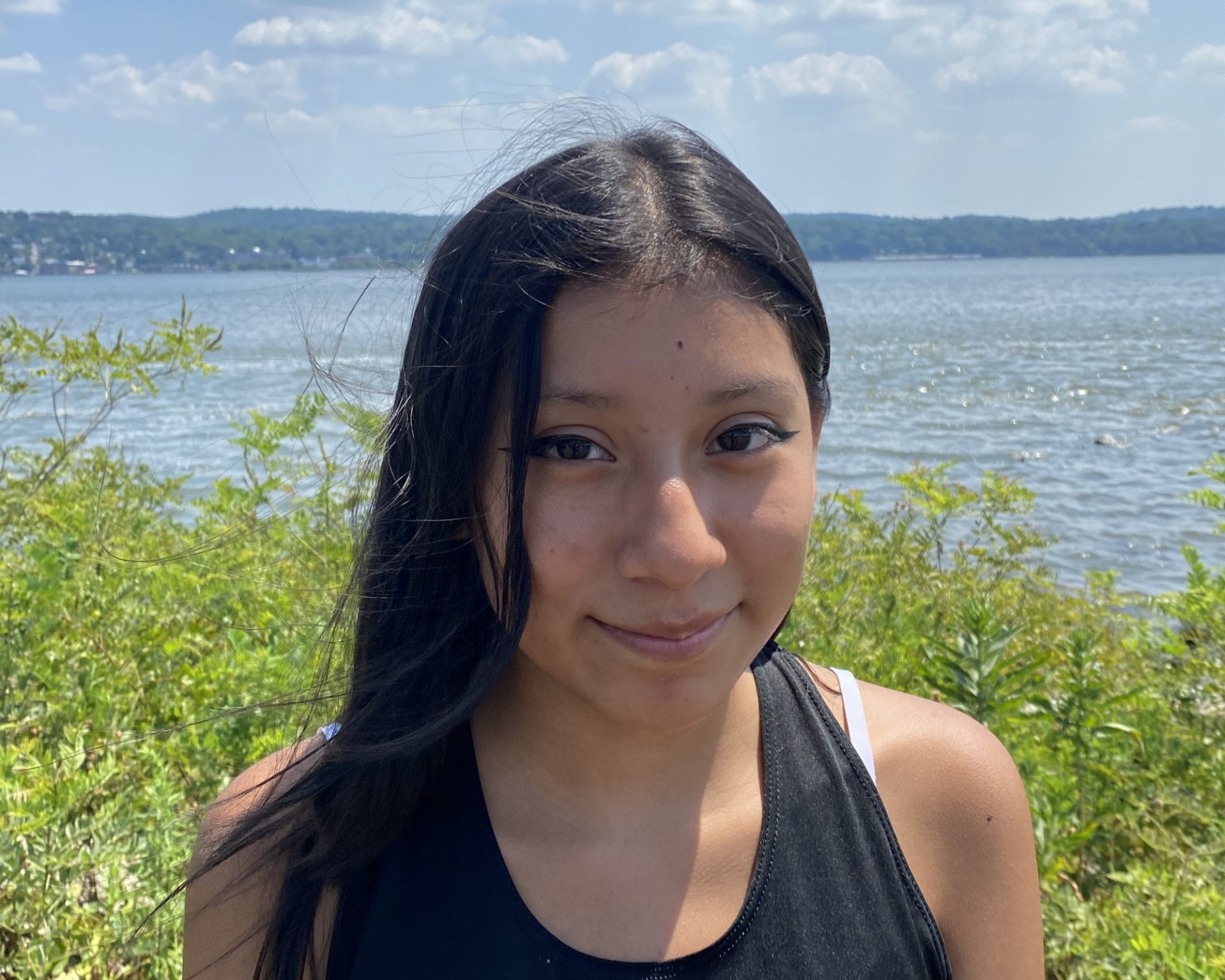
“With the help of the program it made me realize how underrated this river is and how misunderstood it is it’s like people haven’t sat down and actually enjoyed the little thing like the view and even the birds and bugs I learned that the Hudson was full of life having things such as crabs, and many types of fish and that it wasn’t dirty it was just all the sediments that rises up to the surface due to turbidity. I met wonderful and talented people who were just as excited as I was to learn about this river and this created a whole new core memory for me.” —Daira Cardenas, 2022, Spring Valley HS
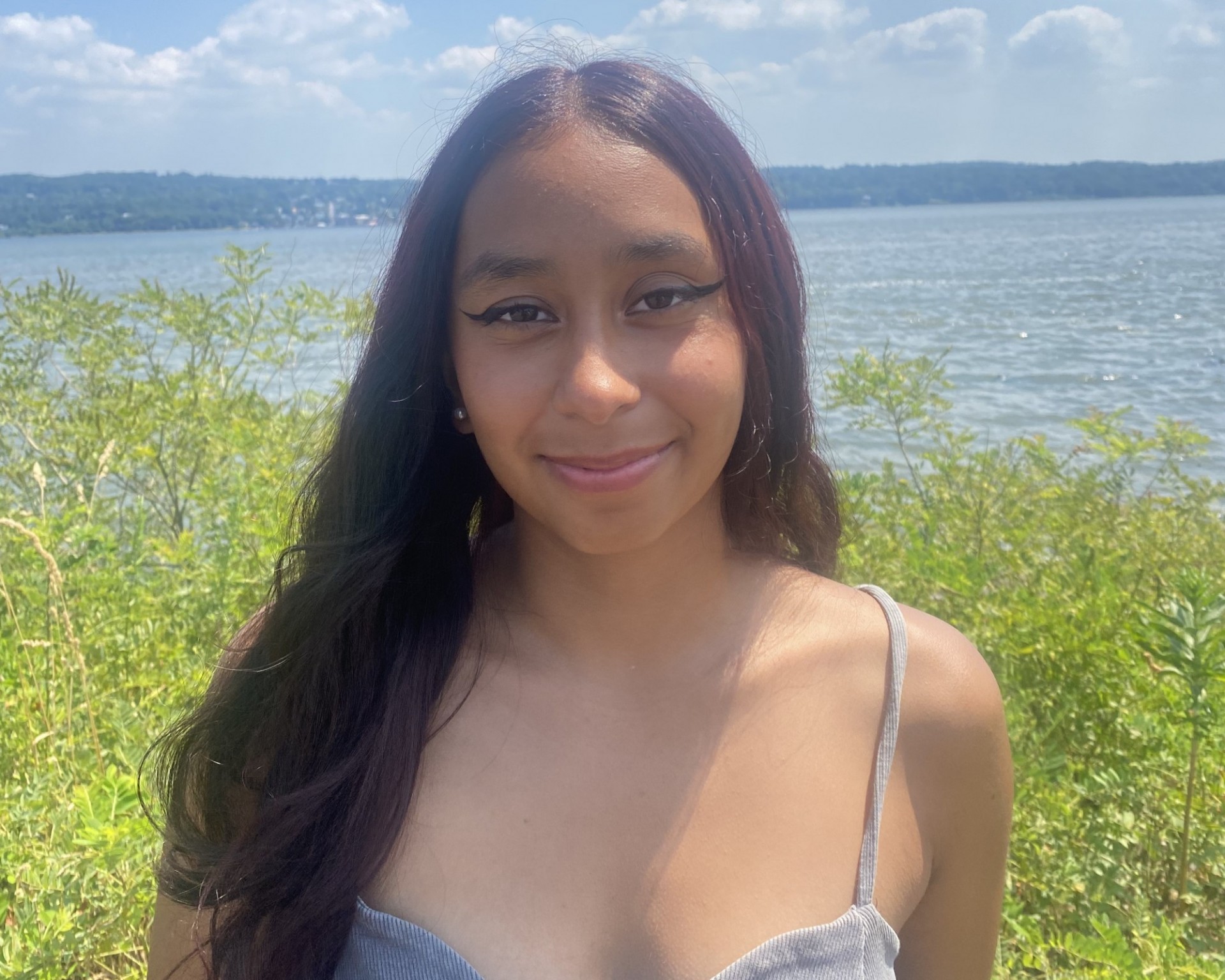
“Growing up in the East Ramapo district, I know that our community is starting to take responsibility and educate people on the importance of nature. The MLK center for the kids is a great example of that.” And my time at this program really put that into perspective for me.” —Kerry Arroyo, 2022, Spring Valley HS
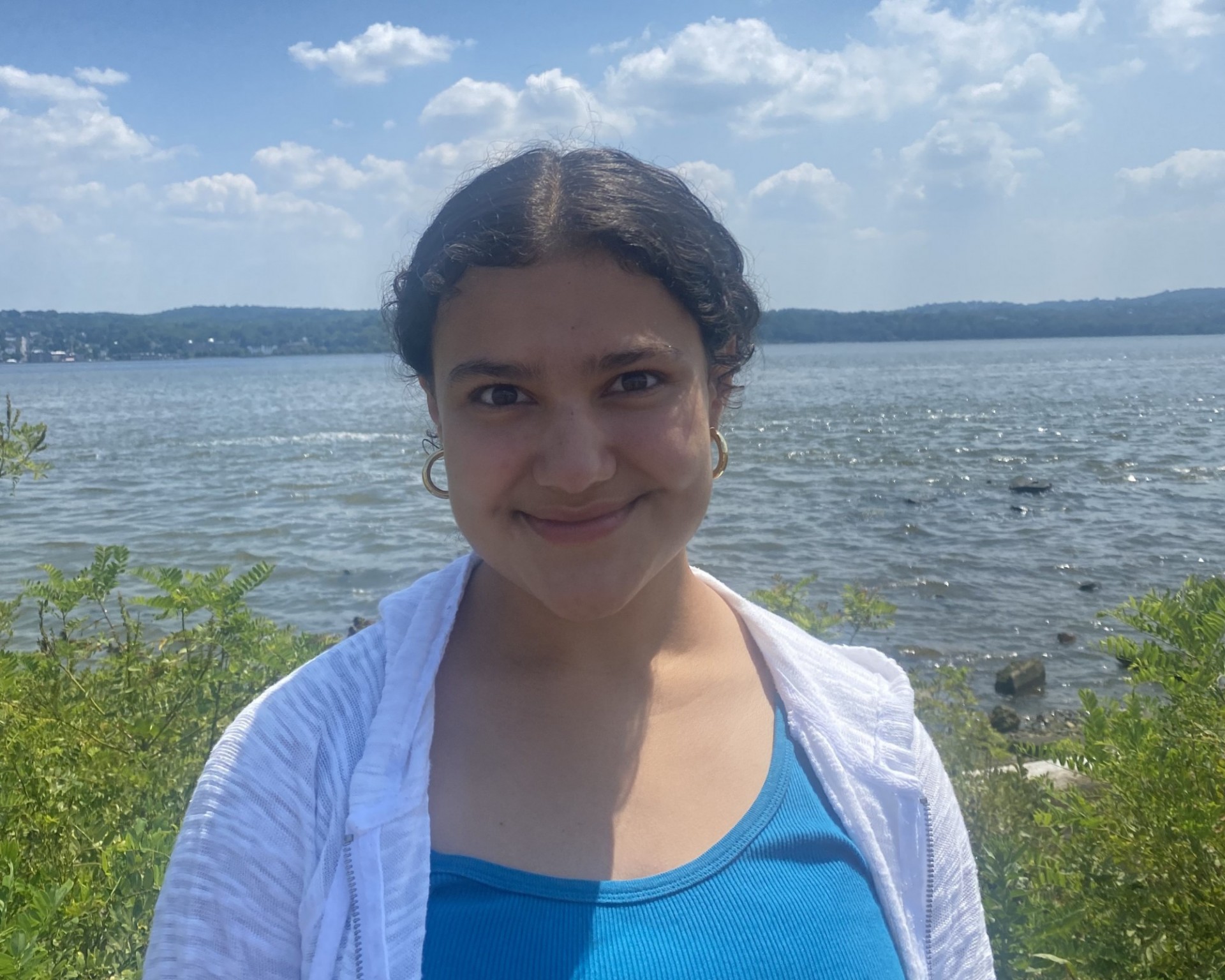
“We all had different angles at approaching the same things, and we all bounced ideas off of each other in such memorable ways. A strong memory for me was seamlessly working together with Janice on water chemistry, and we were multitasking and zipping through so many procedures all at once.” —Isabel Gallegos, 2022, Nanuet HS
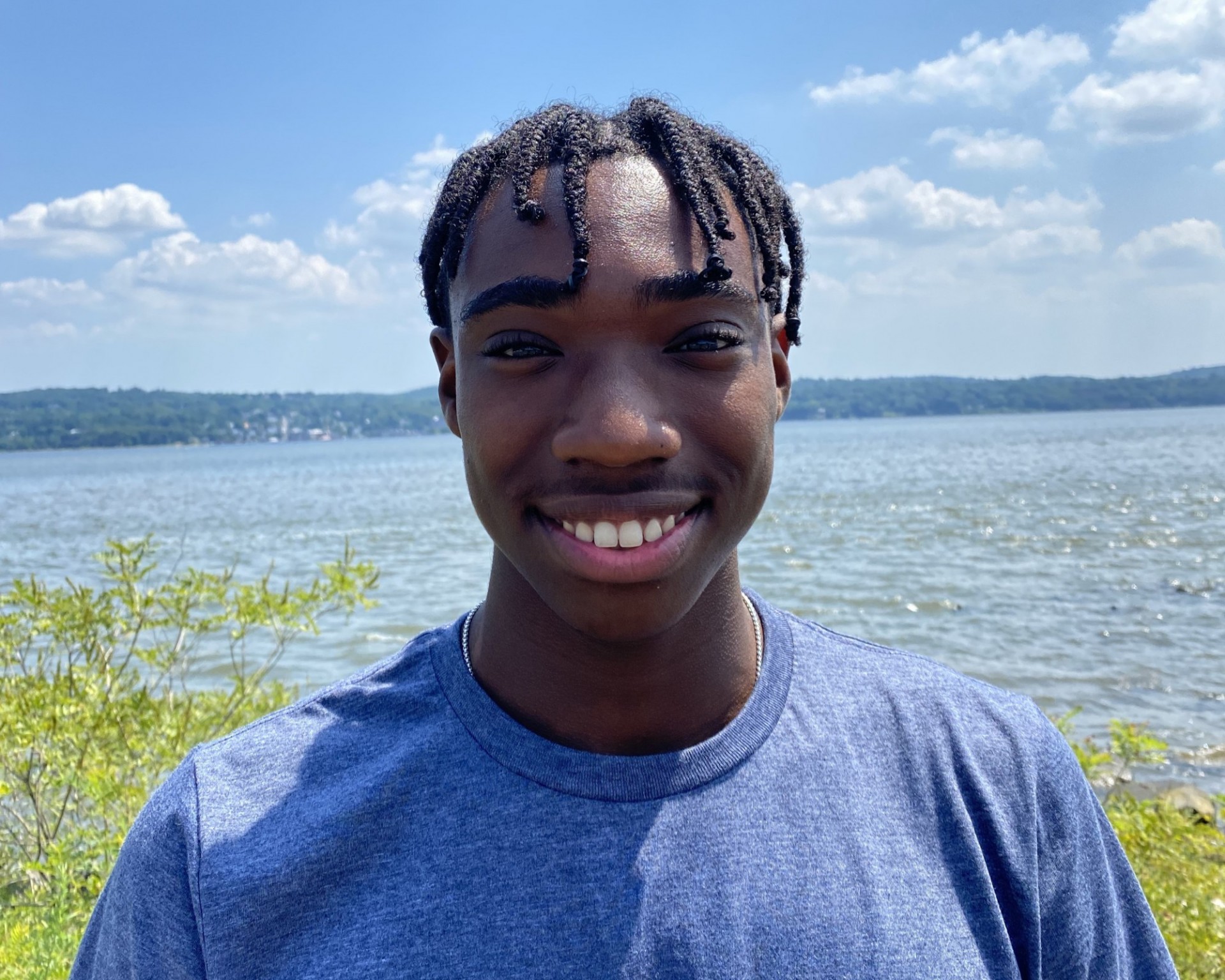
“I really enjoy what we do as next generation Hudson River educators, making sure that the people we talk to think positively about the Hudson and try to make the river even better than it already is.” —Joseph Griffith, 2022, Bergen Catholic HS
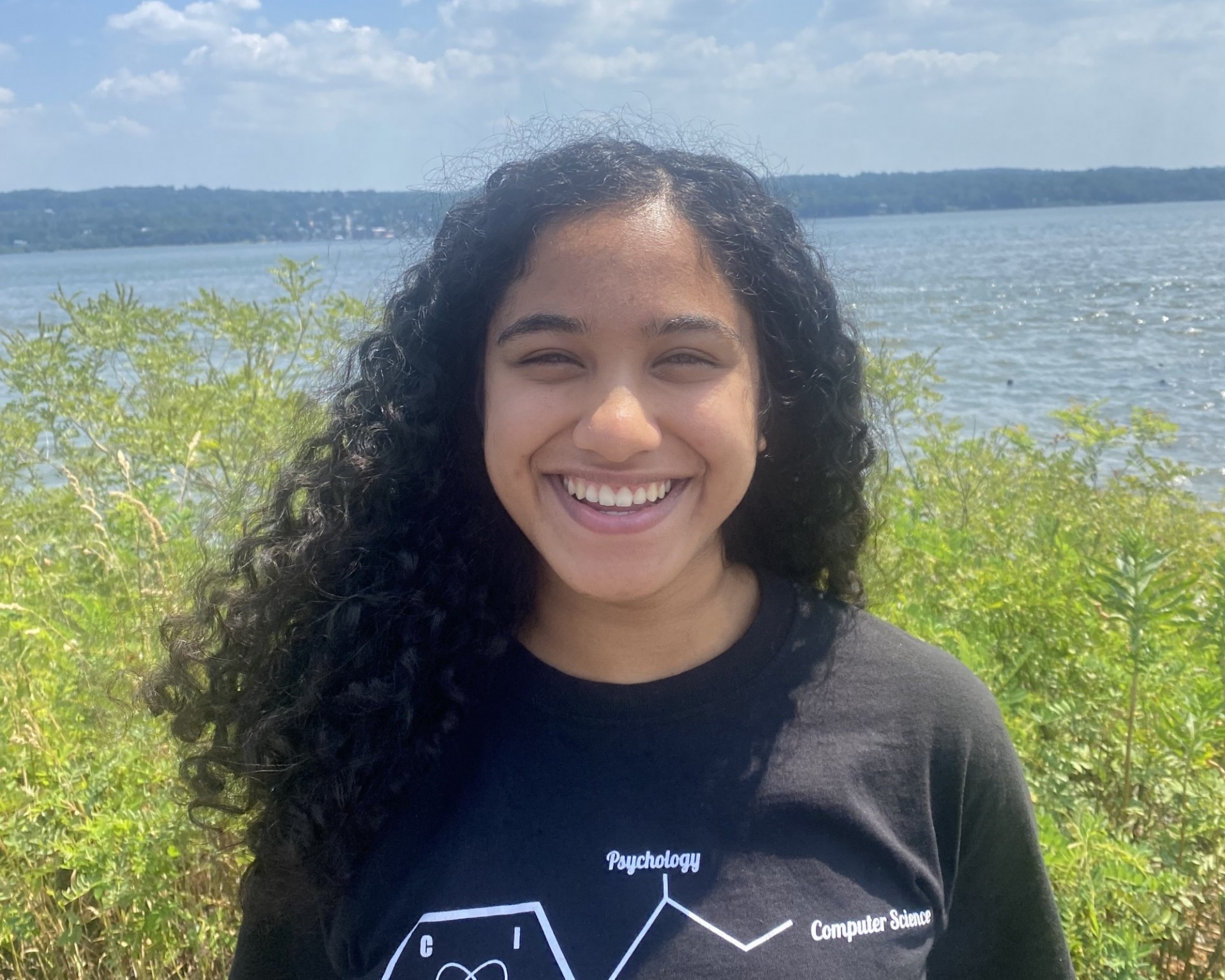
The Hudson has also taught me how to appreciate my local environment. I never thought much about the unique beauty of Rockland, but learning how much aquatic life the Hudson supports in the span of Rockland alone still astounds me. The Hudson has taught me to appreciate Rockland and all of the natural beauty that is hidden underneath the surface of the water.” —Janice Yohannan, 2021-2022, Nyack HS
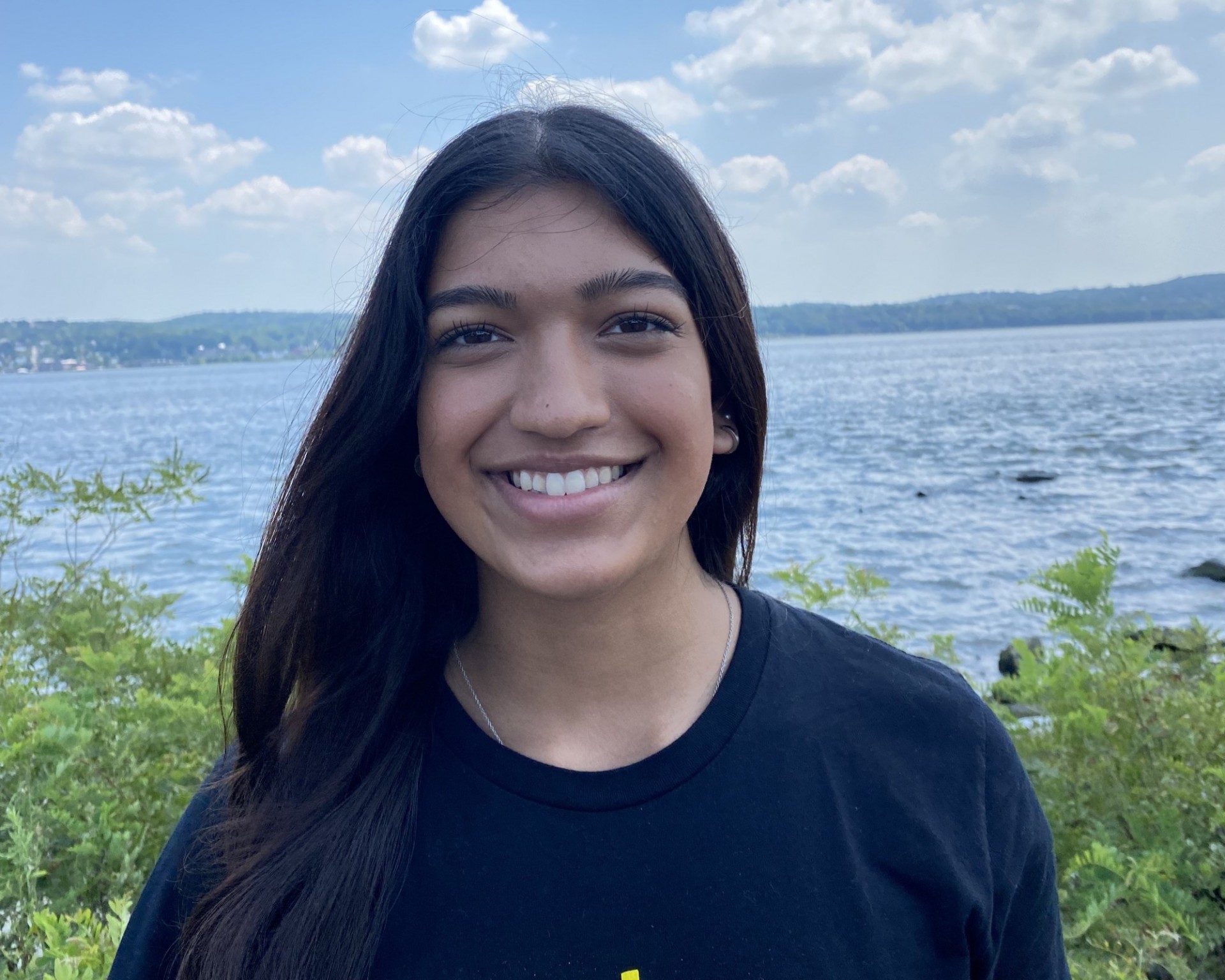
“Letting our family and friends know how simple it is to connect to the Hudson, whether it is by visiting Piermont Pier and Memorial Park in Nyack or participating in Science Saturday, will help them create strong and powerful connections with the Hudson.” —Nikita Chavan, 2022, Nanuet HS
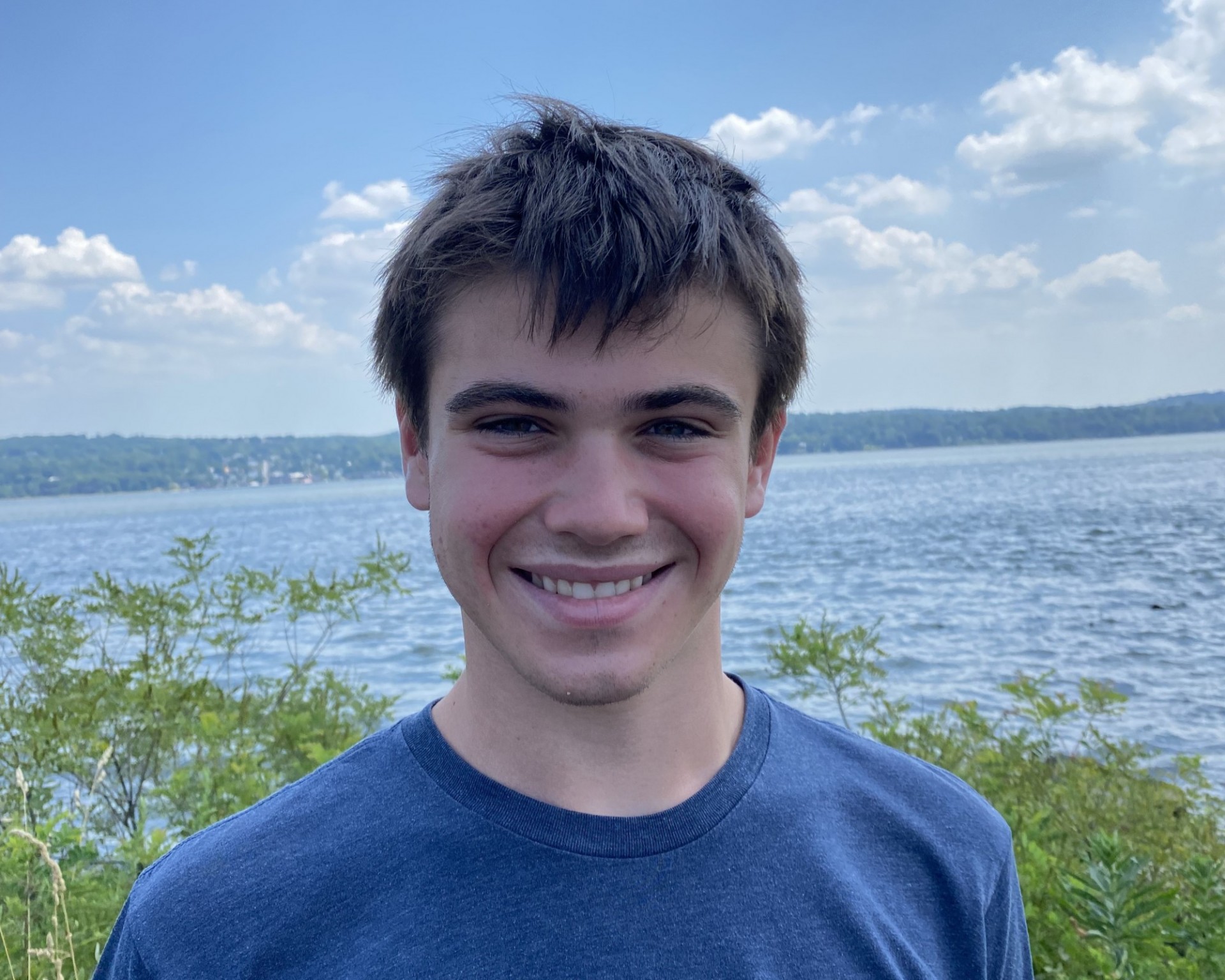
“As educators our role is to correct misinformation concerning the river and to guide students to finding the true information. Without educators to stop the spread of harmful misinformation it can grow and stop many people from valuing the beautiful river so close to them.” —Austen Frappier, 2022, Nyack HS
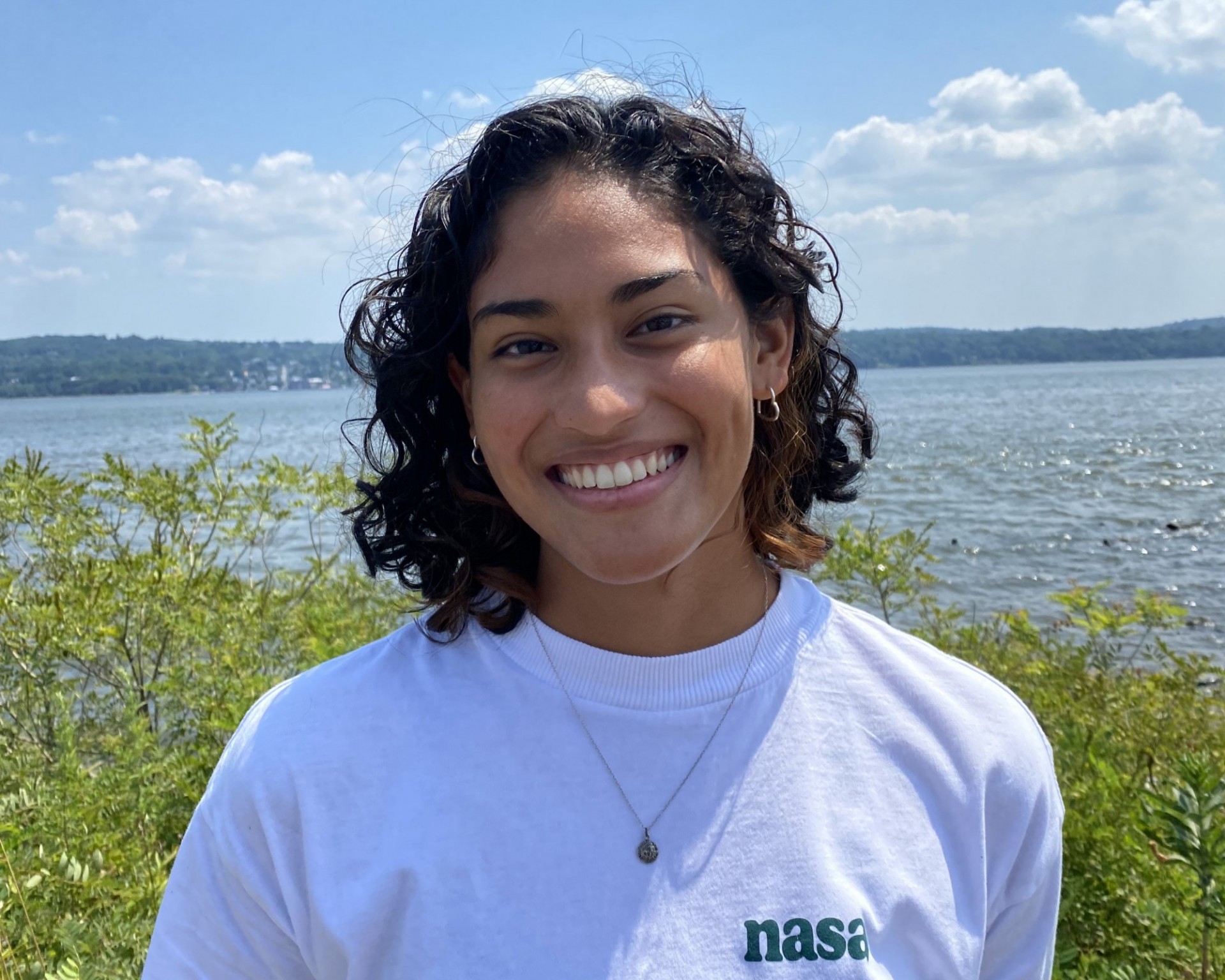
“When we, as educators, steer more towards BIPOC, LGBTQ+, disabled, etc. peoples, we open a door of opportunities for underrepresented groups. Knowing that I was making a difference for younger girls and boys of color was really heartwarming and it motivated me throughout my educating experience.” —Madison Mila, 2022, Nyack HS
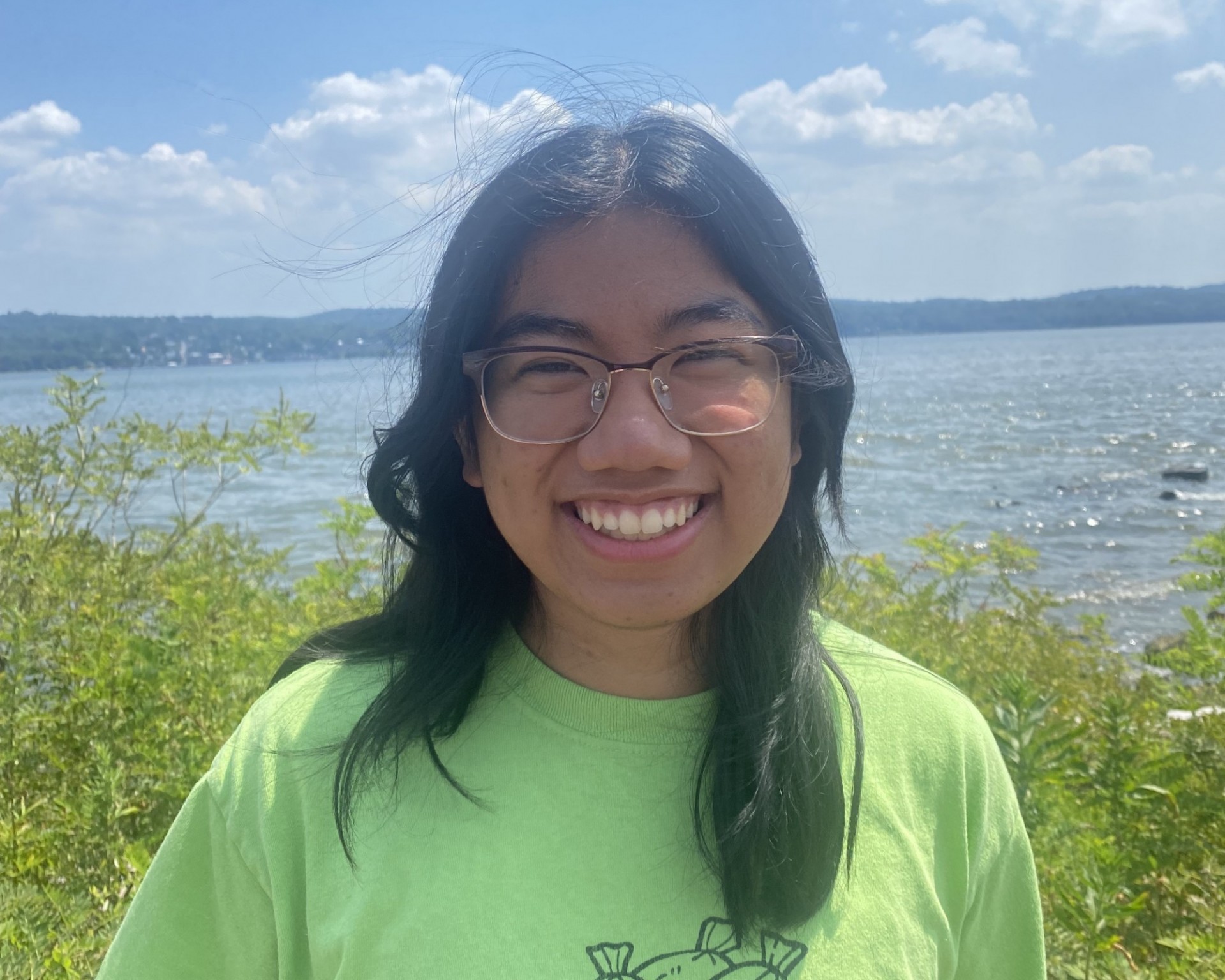
“The Haverstraw community is rooted in connection and building each other up. From restaurants like Los Amigos working to feed everyone in the town, Vilma’s Bakery helping you celebrate a special day, and the Haverstraw Youth Center dedicating their time to expose kids to nature — Haverstraw is all about supporting each other.” —Kaitlyn Canivel, 2021-2022, Albertus Magnus HS
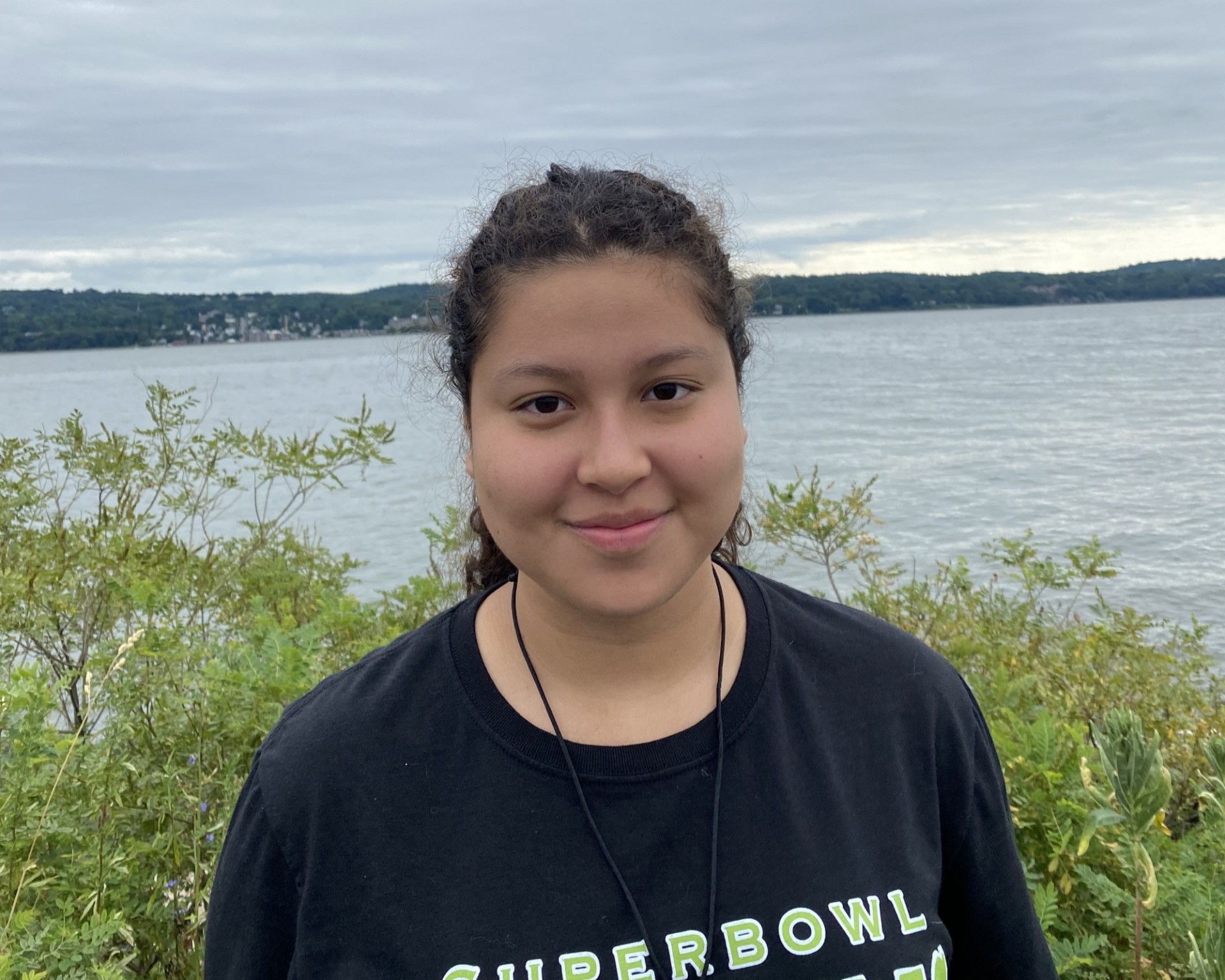
“The Hudson isn't dirty, it's brownish color resembles the nutrient-rich estuary and turbidness. Society has made its brown color a barrier to its cleanliness when in reality the things accountable for its color make it beautiful. I was sixteen years old when I learned the Hudson wasn't dirty and that it prospered with diverse marine life.” —Evelyn Calle, 2022, Nanuet HS
Place-based field investigations build an appreciation for the estuary and environmental stewardship that participants can pass on to their communities. We also host speakers to talk about Hudson science; science communication; diversity, equity, inclusion, and justice (DEIJ) in science and environmental resource access; and community planning to embrace diversity.
Students learn from the Hudson River through field work and data collection, and then work in teams to create their own communication tools designed to engage a diverse and multigenerational audience. In order to offer interesting and relevant information to their communities, students conduct interviews to learn directly from their friends, family, and neighbors about their perceptions and existing knowledge of the Hudson. Involving the community in place-based education is crucial because residents provide key information that is otherwise unknown to a visiting scientist or educator. Students then use this information to build communication tools that better connect all communities to their local waterways!
A Voice of Unity is an extension of the program that looks to unite the voices of Rockland County by sharing the diverse stories, perspectives, and experiences that residents have had with the Hudson while building their knowledge. Students visit the five Rockland towns to learn from their communities about their diverse cultural relationships with the Hudson, then amplify these voices through filmed interviews integrated into a mini-film, annotated by the students, and showcased across the County.
ELIGIBILITY:
The Next Generation of Hudson River Educator Program is for historically underrepresented students in the sciences who are currently enrolled in high school. Student applicants must be at least 16 years old, and preferred current 10th, 11th, and 12th grade students. Honoraria are provided to high school participants.
✏️APPLICATIONS FOR SUMMER 2024 ARE CURRENTLY CLOSED:
- Important information on the 2024 summer Next Gen Program. .
- Applications are currently closed! Successful applicants will be notified by end of March.
If you have any questions, please contact Marisa Annunziato, Education Program Assistant.
